Economy
CBN Injects Fresh Smaller Naira Notes into Circulation

By Dipo Olowookere
In order to improve circulation of N5, N10, N20, and N50, the Central Bank of Nigeria (CBN) has commenced the disbursement of the smaller Naira notes into the market.
The injection kicked off on Tuesday at the Wuse Market in Abuja and the apex bank explained that the move was to improve the ease of doing business in the country and also to make the Naira notes readily available to citizens.
Recently, there has been shortage of the smaller notes at the market. Also, Nigerians have had to deal with mutilated N100 notes, which the central bank blamed on commercial banks operating in the country.
Speaking on Tuesday at the Wuse Market in Abuja, the Acting Director, Currency Operations Department at the CBN, Mrs Priscilia Eleje, said the new Naira notes would be distributed to traders within Wuse and Garki Markets and others through their associations.
She explained that the publicity campaign tagged ‘Disbursement of Lower Denominations of the Naira’ was targeted at the informal sector, especially traders in markets.
Mrs Eleje disclosed that Abuja would be used as the pilot stage of the new campaign and if successful, would be replicated nationwide.
According to her, the money is not free, but exchanged through the various associations in the market for larger denominations.
She further explained that the new strategy would ensure that traders desist from hiking prices of goods simply to avoid looking for “change.”
“The notes we will be disbursing are mints. This money is not meant for you to keep in your house or to go and spray at weddings or sell.
“We have our operatives everywhere and whoever is caught selling these notes would be prosecuted.
“These notes are meant to be used for daily transactions so that when a customer comes to the market, you won’t tell him or her that you don’t have change,” the CBN director said.
Speaking also at the campaign, Deputy Director of Currency Operations Department at the CBN, Mr Vincent Wuranti, urged all users to desist from squeezing the notes, writing on them or using dirty hands to handle them.
He appealed to Nigerians to inculcate the habit of using wallets in order to safeguard the Naira and allow it to have a longer life span.
On his part, Chairman of Wuse Market Association, Mr Rapheal Okoro, thanked the apex bank for the campaign.
He further lamented that insufficient lower denominations of the Naira was one of the greatest problems being faced by his members.
However, he promised to support the central bank achieve its aims and objectives of the new campaign. He appealed to traders to desist from handling the Naira roughly, describing the legal tender as the nation’s symbol of identity that must be treated with respect.
Economy
Nigeria Renews Push for West African Single Currency as ECOWAS Hold Talks
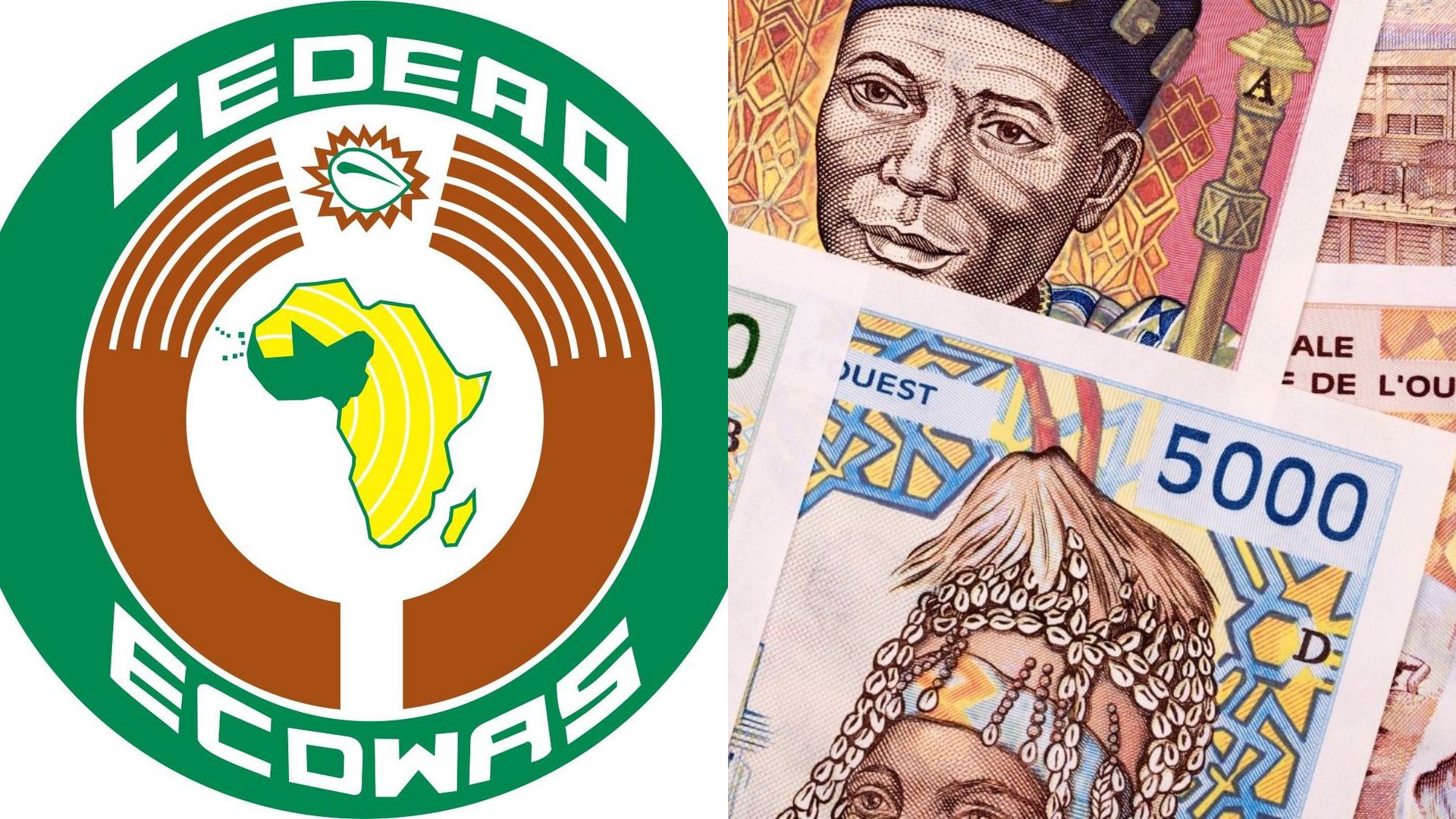
By Adedapo Adesanya
Nigeria is stepping up engagement toward the creation of a regional single currency, following fresh consultations among West African monetary authorities, following constant delay of achieving the goal.
In an update by the Central Bank of Nigeria (CBN) via its X handle, the Governor of the apex bank, Mr Yemi Cardoso, led the country’s delegation to the Committee of Governors meeting held in Monrovia, Liberia, where policymakers reviewed progress and renewed discussions on establishing the long-proposed single currency known as the Eco.
Last year, the West African bloc announced that the single regional currency would be launched by 2027 to foster greater economic integration among member states by facilitating trade through a unified payment system, enhancing price stability and reducing inflationary pressures.
In the latest development, the CBN statement noted that the Nigerian delegation also included Deputy Governor (Economic Policy), Mr Muhammad Sani Abdullahi.
“The meeting formed part of statutory engagements jointly organised by the Economic Community of West African States alongside the West African Monetary Agency, the West African Monetary Institute, and the West African Institute for Financial and Economic Management. The consultations brought together financial regulators and economic policymakers across the sub-region to assess convergence benchmarks required for launching the unified currency”, the apex bank said.
The Eco project is designed to deepen economic integration among ECOWAS member states by providing a common legal tender that would facilitate cross-border trade, enhance price transparency and reduce transaction costs tied to multiple currency exchanges. The initiative has been under discussion for over two decades but has experienced repeated postponements as member countries struggle to meet strict macroeconomic convergence criteria.
The apex bank noted that the meeting focused on evaluating member states’ performance against key economic indicators. These include inflation rate ceilings, fiscal deficit thresholds relative to gross domestic product, and foreign reserve adequacy, all considered critical safeguards for ensuring stability within a potential monetary union.
Despite many delays, ECOWAS latest move shows it may be aligning with Nigeria’s Minister of Foreign Affairs, Mr Yusuf Tuggar, saying last year that member states have started attaining benchmarks to see the goal actualised.
Economy
NCS Denies Manipulating FX Rates in Import, Export Valuation
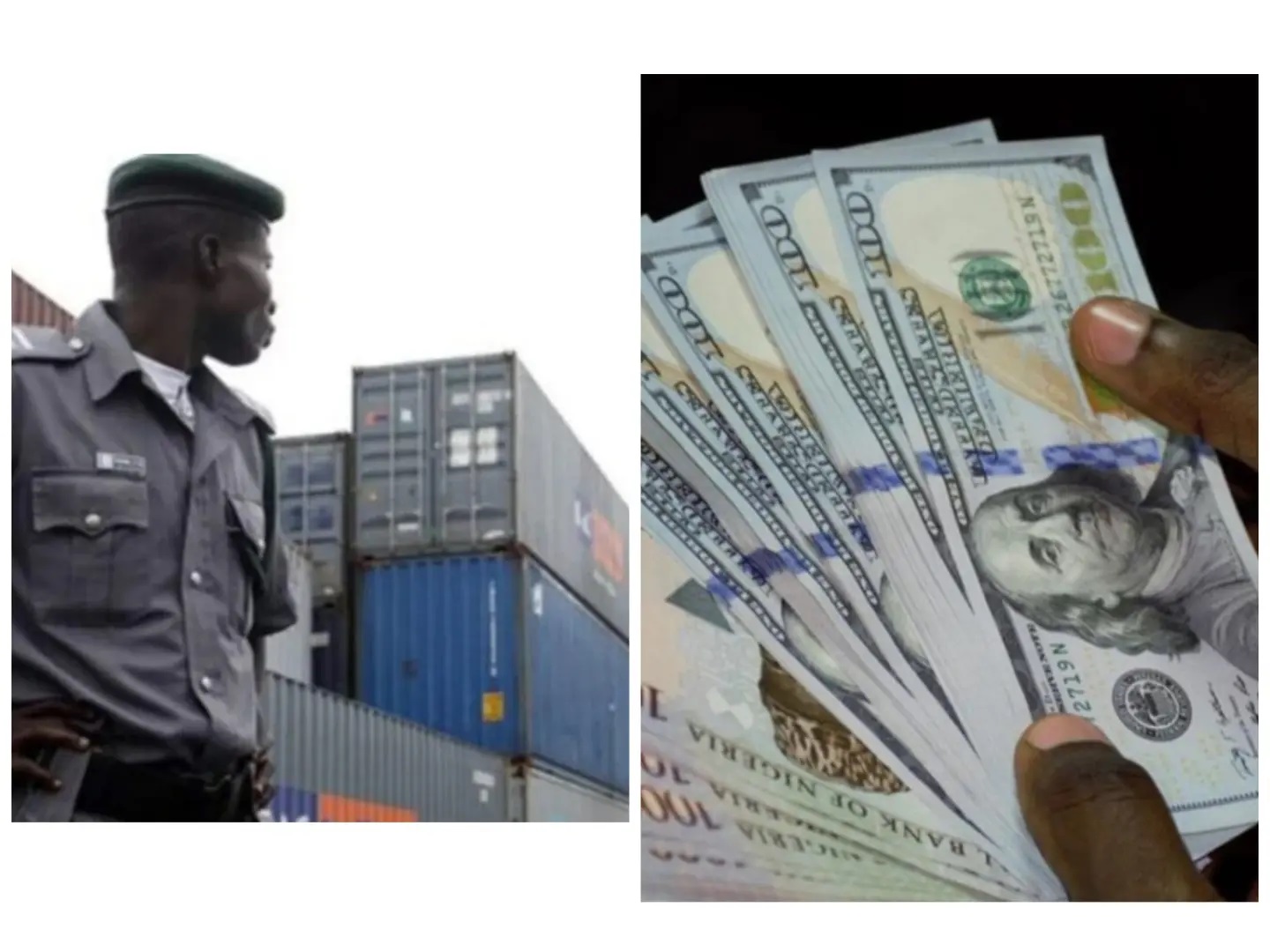
By Adedapo Adesanya
The Nigeria Customs Service (NCS) has clarified how foreign exchange rates are applied in its import and export valuation, saying it neither determines nor alters rates used in cargo clearance.
The service, in a statement by its National Public Relations Officer, Mr Abdullahi Maiwada, explained that it relies solely on official figures transmitted by the Central Bank of Nigeria (CBN).
Mr Maiwada stated that recent public commentary surrounding forex pricing, investor reactions, and customs valuation had prompted NCS to explain the operational framework guiding its digital clearance platform.
“It is worthy of note that the reported exchange rate of N1,451.63/US$ for February 6, 2026 did not originate from the B’Odogwu system.
“That figure was sourced from trade.gov.ng, a legacy public trade information portal that does not reflect live Customs processing data,” it stated.
According to him, all exchange rates used in trade processing are automatically integrated into its Unified Customs Management System, known as B’Odogwu, which it described as the sole official portal for declarations, clearance, and valuation.
“It is important to provide factual clarification on how exchange rates are received, processed, and applied within the NCS digital clearance system, B’Odogwu, a Unified Customs Management System which serves as the sole official platform for Customs declarations, clearance, and valuation,” the statement reads.
The NCS spokesman said the Service receives rates electronically from the apex bank and applies them uniformly across commands nationwide, ensuring transparency, predictability, and compliance with statutory fiscal and monetary policies.
He argued that NCS does not generate or manipulate exchange rates under any circumstances.
Instead, it explained that the platform operates structured data-integration protocols designed to ingest and apply exchange-rate feeds exactly as transmitted.
“For the avoidance of doubt, the Nigeria Customs Service does not independently determine, generate, alter, or apply margins to foreign exchange rates used for import and export valuation.
“All exchange rates applied within the B’Odogwu platform are official rates electronically transmitted by the Central Bank of Nigeria, which remains the competent authority for exchange rate determination under Nigeria’s monetary framework,” Mr Maiwada added.
Economy
Dangote Gets $400m Chinese Construction Equipment for Refinery Expansion
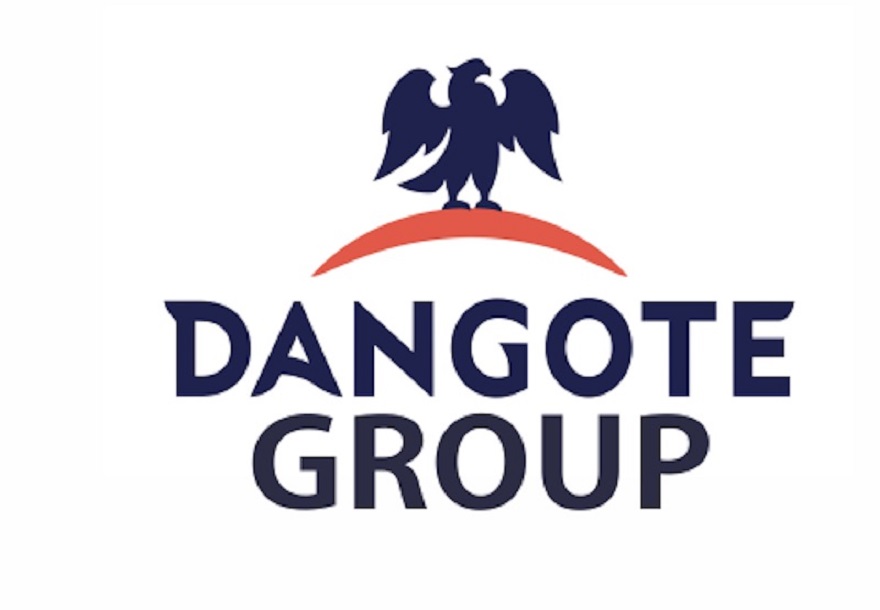
By Aduragbemi Omiyale
To fast track the expansion of its Lagos-based refinery, Dangote Group has sealed a $400 million construction equipment deal with one of the leading manufacturers of construction machinery in China, XCMG Construction Machinery Company Limited.
A statement from the conglomerate disclosed that beyond refining, the expansion programme will see polypropylene production increase from 900,000 metric tonnes per annum to 2.4 million metric tonnes per annum.
Urea capacity in Nigeria will be tripled from 3 million to 9 million metric tonnes per annum, in addition to the 3 million metric tonnes per annum capacity in Ethiopia, strengthening the Group’s position as the largest urea producer globally.
There are plans to expand the Dangote Petroleum Refinery and Petrochemicals from 650,000 barrels per day to 1.4 million barrels per day, positioning it to become the largest refinery in the world.
The Chinese deal will enable Dangote Group to acquire additional wide range of advanced construction equipment to support ongoing and forthcoming projects across refining, petrochemicals, agriculture and large-scale infrastructure development. The new equipment will complement existing assets deployed for the refinery expansion, which is expected to be completed within three years.
Production capacity for Linear Alkyl Benzene (LAB) will also be increased to 400,000 metric tonnes per annum, positioning the Group as the largest producer in Africa and strengthening supply to the detergent and cleaning agents manufacturing industry. Additional base oil production capacity also forms part of the broader expansion programme.
Dangote Group described the agreement as a strategic investment aimed at deepening its construction footprint and accelerating its ambition to build a $100 billion enterprise by 2030.
“The additional equipment we are acquiring under this partnership will significantly enhance execution across our projects. With this investment, we are positioning ourselves to become the number one construction company in the world,” it stated.
-

 Feature/OPED6 years ago
Feature/OPED6 years agoDavos was Different this year
-
Travel/Tourism10 years ago
Lagos Seals Western Lodge Hotel In Ikorodu
-

 Showbiz3 years ago
Showbiz3 years agoEstranged Lover Releases Videos of Empress Njamah Bathing
-

 Banking8 years ago
Banking8 years agoSort Codes of GTBank Branches in Nigeria
-

 Economy3 years ago
Economy3 years agoSubsidy Removal: CNG at N130 Per Litre Cheaper Than Petrol—IPMAN
-

 Banking3 years ago
Banking3 years agoSort Codes of UBA Branches in Nigeria
-

 Banking3 years ago
Banking3 years agoFirst Bank Announces Planned Downtime
-

 Sports3 years ago
Sports3 years agoHighest Paid Nigerian Footballer – How Much Do Nigerian Footballers Earn






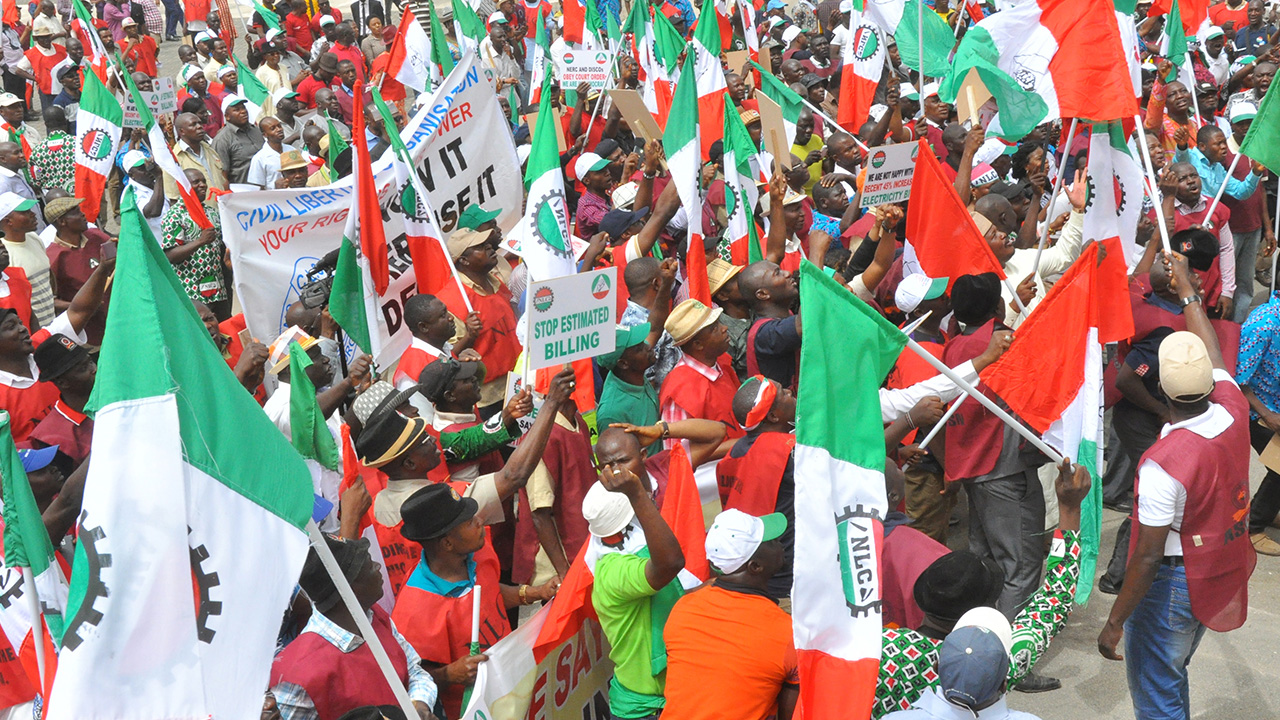
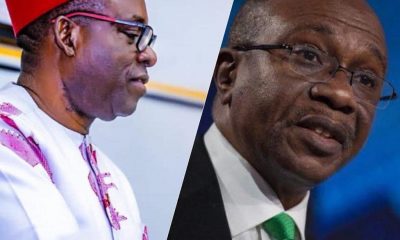














1 Comment